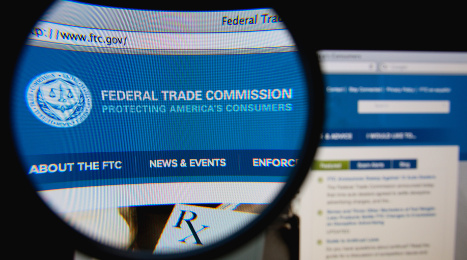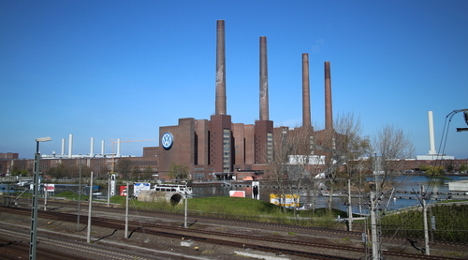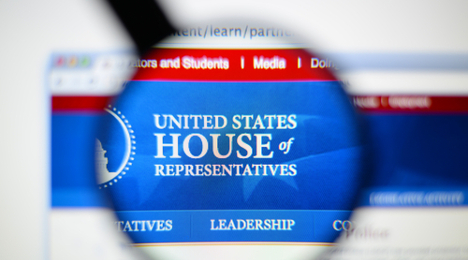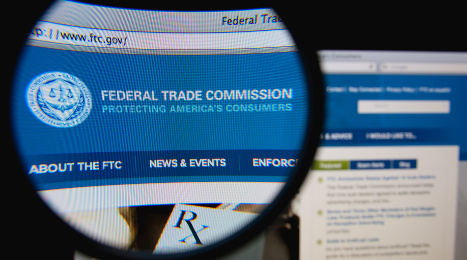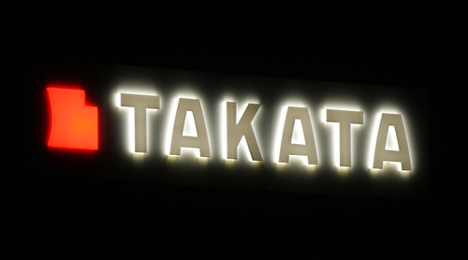The ongoing fallout from emission problems associated with certain Volkswagen diesel models sparked the Justice Department to file a federal complaint on Monday.
In part because officials insisted, “recall discussions with the company have not produced an acceptable way forward,” the Department of Justice, on behalf of the Environmental Protection Agency, filed a civil complaint in federal court in Detroit against Volkswagen AG, Audi AG, Volkswagen Group of America, Volkswagen Group of America Chattanooga Operations, Porsche AG and Porsche Cars North America Inc. (collectively referred to as Volkswagen).
The complaint alleges that nearly 600,000 diesel engine vehicles had illegal defeat devices installed that impair their emission control systems and cause emissions to exceed EPA’s standards, resulting in harmful air pollution.
The complaint further alleges that Volkswagen violated the Clean Air Act by selling, introducing into commerce, or importing into the United States motor vehicles that are designed differently from what Volkswagen had stated in applications for certification to EPA and the California Air Resources Board (CARB).
Part of the statement from Assistant Administrator Cynthia Giles for the EPA’s Office of Enforcement and Compliance Assurance should draw attention from VW dealerships still answering owner concerns about when their vehicles might have an OEM-provided remedy.
“With today’s filing, we take an important step to protect public health by seeking to hold Volkswagen accountable for any unlawful air pollution, setting us on a path to resolution,” Giles said.
“So far, recall discussions with the company have not produced an acceptable way forward. These discussions will continue in parallel with the federal court action,” she continued.
Kelley Blue Book senior analyst Karl Brauer offered another assessment of the legal development that might benefit VW stores and their customers.
“This is another lever the government can use to compel VW to address its diesel issue,” Brauer said in a message to Auto Remarketing.
“While the potential for a civil fine is quite high, the government’s real goal is the resolve this issue,” he continued. “It’s likely the DOJ will work with VW and other government agencies to create a comprehensive solution for current VW owners.
“The specter of a looming, multi-billion-dollar fine will provide VW with additional incentive to act quickly, but the actual fine will balance punitive action against any long-term damage to VW’s financial health,” Brauer went on to say.
Consistent with EPA’s Notices of Violation, issued on Sept. 18 for 2.0 liter engines and Nov. 2 for certain 3.0 liter engines, the complaint alleges that the defeat devices cause emissions to exceed EPA’s standards during normal driving conditions.
The Clean Air Act requires vehicle manufacturers to certify to EPA that their products will meet applicable federal emission standards to control air pollution. Motor vehicles equipped with illegal defeat devices cannot be certified.
The complaint alleges that Volkswagen equipped certain 2.0-liter vehicles with software that detects when the vehicle is being tested for compliance with EPA emissions standards and turns on full emissions controls only during that testing process.
During normal driving situations the effectiveness of the emissions control devices is greatly reduced. Officials contend this situation results in models that meet emissions standards in the laboratory and at the test site, but during normal on-road driving emit oxides of nitrogen (NOx) at levels up to 40 times the EPA compliance level.
In total, the complaint covers approximately 499,000 2.0 liter diesel vehicles sold in the United States since the 2009 model year.
“Car manufacturers that fail to properly certify their cars and that defeat emission control systems breach the public trust, endanger public health and disadvantage competitors,” said Assistant Attorney General John Cruden for the Justice Department’s Environment and Natural Resources Division.
“The United States will pursue all appropriate remedies against Volkswagen to redress the violations of our nation’s clean air laws alleged in the complaint,” Cruden added.
The complaint further alleges that Volkswagen also equipped certain 3.0-liter vehicles with software that senses when the vehicle is undergoing federal emissions testing. When the vehicle senses the test procedure, it operates in a “temperature conditioning” mode and meets emissions standards. At all other times, including during normal vehicle operation, the vehicles operate in a “normal mode” that permits NOx emissions of up to nine times the federal standard. In total, the complaint covers approximately 85,000 3.0-liter diesel vehicles sold in the United States since the 2009 model year.
Regulators emphasized NOx pollution contributes to harmful ground-level ozone and fine particulate matter. They explained these pollutants are linked with asthma and other serious respiratory illnesses.
Exposure to ozone and particulate matter is also associated with premature death due to respiratory-related or cardiovascular-related effects. Children, the elderly and people with pre-existing respiratory disease are particularly at risk of health effects from exposure to these pollutants.
Recent studies indicate that the direct health effects of NOx are worse than previously understood, including respiratory problems, damage to lung tissue and premature death.
“Today’s complaint is the first stage in bringing Volkswagen to justice for failing to disclose the defeat device while seeking certification for its diesel vehicles from EPA’s Office of Transportation and Air Quality in Ann Arbor, Michigan,” said U.S. Attorney Barbara McQuade for the Eastern District of Michigan.
“The alleged misrepresentations allowed almost 600,000 diesel engines to emit excessive air pollution across the country, harming our health and cheating consumers,” McQuade went on to say.
Monday’s filing of a civil complaint under Sections 204 and 205 of the Clean Air Act seeks injunctive relief and the assessment of civil penalties. A civil complaint does not preclude the government from seeking other legal remedies. The United States will seek to transfer its case and fully participate in the pretrial proceedings now initiated in the related multi-district litigation in the Northern District of California.
The United States’ investigation is ongoing, in close coordination with CARB. EPA and CARB have been in active discussion with Volkswagen about potential remedies and recalls to address the noncompliance, and those discussions are ongoing.
Affected 2.0-liter diesel models and model years include:
— Jetta (2009-2015)
— Jetta Sportwagen (2009-2014)
— Beetle (2013-2015)
— Beetle Convertible (2013-2015)
— Audi A3 (2010-2015)
— Golf (2010-2015)
— Golf Sportwagen (2015)
— Passat (2012-2015)
Affected 3.0-liter diesel models and model years include:
— Volkswagen Touareg (2009-2016)
— Porsche Cayenne (2013-2016)
— Audi A6 Quattro (2014-2016)
— Audi A7 Quattro (2014-2016)
— Audi A8 (2014 – 2016)
— Audi A8L (2014-2016)
— Audi Q5 (2014-2016)
— Audi Q7 (2009-2015)
In light of a variety of new ways emerging to buy vehicles nowadays — not just through a dealership or private-party transaction — the Federal Trade Commission announced on Monday that it will host a one-day workshop.
FTC officials explained the event set for Jan. 19 is being designed to explore competition and related issues in the U.S. auto distribution system, including how consumers and businesses may be affected by state regulations and emerging trends in the industry. The event will take place in Washington, D.C., at the FTC’s Constitution Center Auditorium, starting at 9 a.m.
“The auto industry is a critical sector of the U.S. economy and one that is undergoing substantial technology-driven change,” FTC officials said. “It is currently subject to regulation at both the state and federal level.”
The FTC pointed out that states, for example, regulate the relationship between manufacturers and dealers that sell vehicles to consumers, including dealer location, warranty reimbursement and direct-to-consumer sales.
The agency noted other state and federal regulations govern a variety of other aspects of auto operation and ownership, such as safety, insurance and licensing.
The January workshop will focus primarily on exploring the competition issues arising from state level regulation of auto distribution. It also will explore emerging trends in the auto industry, such as car-sharing, connected cars and autonomous vehicles, with a focus on how those trends will affect the current regulatory system that governs the auto industry.
The workshop will be webcast live on the FTC’s website. Officials mentioned that individuals who want to attend in person advance registration is not required, but is strongly encouraged.
The agency added registration information, an agenda, directions to the FTC’s Constitution Center building and a list of speakers will be available in the near future on the event’s website.
Whew, what a day.
Several announcements were made Thursday regarding new and ongoing issues related to three different automakers — and they were quite substantial.
These evolving matters include an update on Volkswagen’s diesel situation, the final report on General Motors’ ignition switch compensations to those affected, and a civil penalty brought against Fiat Chrysler Automobiles by NHTSA.
Starting in Wolfsburg, Germany, Volkswagen AG hosted a conference call early in the day (EST), outlining its continued efforts to realign the company and its brands for increased economic efficiency and transparency to get it back on track financially and regain confidence with its customer base.
While VW AG’s leadership discussed several topics encompassing its current internal and external investigations into both its European CO2-emissions issues as well as its multi-national NOx-emissions issues, one key item of discussion will likely be most important to dealers in the United States: There is still no concrete emedy in place to fix the North American diesel vehicles.
According to a statement by VW, the company said that “due to far stricter nitrogen oxide limits in the United States, it is a greater technical challenge to retrofit the vehicles such that all applicable emissions limits can be met with one and the same emissions strategy.”
While VW officials noted their plans to have the European variants of the TDI engines repaired have been approved by the appropriate authorities and will be handled in various fashions over the course of 2016, VW’s plan for a North American remedy is still awaiting approval from the U.S. Environmental Protection Agency and the California Air Resources Board.
What VW did do, however, is accept the blame for the diesel deceit. A statement from the company explains how it all played out:
The information that has been screened to date has largely explained the origin and development of the nitrogen oxide issue. It proves not to have been a one-time error, but rather a chain of errors that were allowed to happen. The starting point was a strategic decision to launch a large-scale promotion of diesel vehicles in the United States in 2005. Initially, it proved impossible to have the EA 189 engine meet by legal means the stricter nitrogen oxide requirements in the United States within the required timeframe and budget. This led to the incorporation of software that adjusted nitrogen oxide emission levels according to whether vehicles were on the road or being tested. Later, when an effective technical process was available to reduce NOx emissions, it was not employed to the full extent possible. On the contrary, the software in question allowed the exhaust gas treatment additive “AdBlue” to be injected in variable amounts such that the NOx values were particularly low when vehicles were in the test bay, but significantly higher when vehicles were on the road.
Hans Dieter Potsch, the chairman of the supervisory board of VW AG, said that, “No business transaction justifies overstepping legal and ethical bounds.”
“I here and now guarantee that we will pursue our thorough investigation to its conclusion,” Potsch said. “I vouch for this personally, as does the entire supervisory board of Volkswagen AG.”
Final report on GM ignition switch compensation released
Kenneth Feinberg, the attorney heading the compensation process for General Motors, released his final report on Thursday, revealing how many claims were submitted and approved in the ignition switch settlement.
The findings of the report conclude that 124 people were killed in relation to the faulty ignition switches in GM’s compact vehicles. Another 275 were approved to receive compensation for their injuries. The total compensation for payouts from the GM fund that Feinberg administered come out to a total of $594.5 million.
A total of 4,343 claims were submitted to the automaker – less than 10 percent were deemed eligible.
Auto Remarketing reached out to GM on Thursday for an official comment on the findings but has not received a response at the time of this writing.
To check out a full breakdown of the findings, click here.
NHTSA imposes $70 million penalty against FCA
In other news related to recent manufacturer challenges, the U.S. Department of Transportation’s National Highway Traffic Safety Administration issued FCA a $70 million civil penalty on Thursday, citing the company’s failure to report legally required safety data as the impetus.
The penalty befalls FCA following its September admission that it has failed, over the course of several years, to provide Early Warning Report data to NHTSA as required by the TREAD Act of 2000. The administration uses this data, among others, to identify and investigate potential defects that may require a safety recall.
According to NHTSA, FCA has commissioned a third-party audit to determine the full extent of the reporting failures.
“Accurate, early-warning reporting is a legal requirement, and it’s also part of a manufacturer’s obligation to protect the safety of the traveling public,” said U.S. Transportation Secretary Anthony Foxx. “We need FCA and other automakers to move toward a stronger, more proactive safety culture, and when they fall short, we will continue to exercise our enforcement authority to set them on the right path.”
FCA isn’t alone in this realm, however – the company is the fifth automotive manufacturer to be penalized by NHTSA in the last 14 months for failure to meet early warning reporting requirements. These previous penalties have been issued to Honda, Ferrari, Triumph, Forest River and Spartan Motors.
While Volkswagen has been facing NOx-emission-related issues in North America for its diesel vehicles, the company has also been handling a CO2-emission-related issue in Europe. Wednesday, the company says that issue is “largely concluded.”
Questions arose from the German government’s Federal Motor Transport Authority a month ago estimating that approximately 800,000 vehicles manufactured by VW’s various companies were under suspicion for producing higher levels of CO2 emissions and achieving lower fuel efficiency than originally posted.
Today, VW admits that the discrepancy was factual but that it only affects approximately 36,000 vehicles from nine model variants in Europe. They also reaffirm that no unlawful change has been made to the vehicles’ stated fuel consumption or their CO2 figures and that the handful of vehicles that were found with discrepancies will have their catalogues updated to reflect more accurate figures.
According to VW, the only deviations found in the figures for the nine model variants amount to a few grams of CO2 on average, and that the nine models account for only 0.5 percent of the volume of the VW brand. VW also says that none of the vehicles have misrepresented fuel economies.
VW plans to have all of the affected model variants remeasured by a neutral technical service under the supervision of the appropriate authority by Dec. 25.
To reiterate, this issue is contained to Europe and does not include products and services provided by Volkswagen Group of America or Volkswagen Canada or any of their North American affiliates.
In other VW news, VW AG will host a live press conference tomorrow morning to provide "information on the current status of the clarification process concerning the diesel issue and on the realignment of the group." Those in North America that are curious and early-to-rise can check out a live stream of the press conference at 4:20 a.m. EST here.
What makes a rental company, well, a rental company? Seems like a simple question, right? Perhaps it is — however, when considering federal legislation, the devil is in the details.
That was the cause for a lot of tension last week for the National Automobile Dealers Association and the National Independent Automobile Dealers Association, along with some of their respective members, who were preparing to see a list of amendments go to a House of Representatives vote to update the DRIVE Act, which recently passed through the Senate.
Among many, many other parts of that bill, one provision in particular, aimed at rental car companies, would prohibit those companies from renting or selling vehicles subject to a safety recall.
An eight-word amendment to clarify that statement, supported by Republican Rep. Roger Williams of Texas, aimed to make it only rental car companies whose business primarily engaged in the business of renting covered rental vehicles, “primarily” being the key word, to be covered by the new recall requirements of the DRIVE Act.
That issue went to a vote last week, and the amendment, along with quite a few others, passed by an overwhelming margin (363-64).
Steve Jordan, NIADA’s chief executive officer, attributed that “victory” in part to the outreach of his association’s members, and NADA's, which also helped voice their collective opposition to Connecticut Democratic Sen. Richard Blumenthal’s proposed bill this past summer, which would have prohibited the sale or lease of used vehicles subject to a recall.
"As it was this summer, this outcome is a testament to our members and their passion for their industry," Jordan said. "This is a classic example of dealers making a difference. They spoke, and their voice was heard. It shows what we can accomplish when we turn our commitment into action."
If you’re up for some light reading, you can check out the state of the bill before the amendments were voted on here, and check out the list of amendments that were passed here.
Keep in mind that this is not the end of the road for the DRIVE Act — the amendments now await approval from a conference committee to reconcile its current version with the Senate version. Stay tuned to Auto Remarketing as we continue to track the situation.
ACA International, the association of credit and collection professionals, is raising concerns over a regulatory enforcement program launched last week by the Federal Trade Commission that officials contend could paint legitimate debt collectors and fraudsters with one broad stroke.
The Federal Trade Commission announced the beginning of Operation Collection Protection — a new coordinated federal-state enforcement initiative targeting deceptive and abusive debt collection practices. As part of Operation Collection Protection, the FTC released information on 30 federal, state and local law enforcement actions taken against debt collection agencies.
The FTC also announced five new enforcement actions against collectors allegedly engaged in illegal practices.
The FTC is partnering with law enforcement, the U.S. Department of Justice, the Consumer Financial Protection Bureau, Attorneys General from 47 states and the District of Columbia, and local law enforcement authorities for this program.
“Being in debt is stressful enough for many Americans without also being subjected to intimidation and false threats,” FTC chairwoman Edith Ramirez said. “Debtors have certain rights and rogue collectors that step outside the law will face the consequences of illegal behavior.”
The FTC added its nationwide crackdown encompasses 30 new law enforcement actions by federal, state, and local law enforcement authorities against collectors who use illegal tactics such as harassing phone calls and false threats of litigation, arrest, and wage garnishment. The cases announced last week bring to 115 the total number of actions taken so far this year by the more than 70 law enforcement partners in the Operation Collection Protection initiative.
Illinois Attorney General Lisa Madigan said, “My office receives thousands of calls and complaints each year from consumers who are victims of illegal debt collection tactics. Through our partnership with the FTC and states across the country, we are putting scam operations out of business and protecting consumers from abusive practices by legitimate creditors.”
Minnesota Commerce Commissioner Mike Rothman added, “Illegal and abusive tactics by debt collectors are a nationwide problem that requires a nationwide response. By working together in this new federal-state collaboration, we are joining our forces to stop these abusive practices and protect the public.”
ACA International unequivocally condemns fraudulent, abusive, and unethical debt collection practices. ACA welcomes the opportunity to work with the FTC and other government agencies to stop criminals and bad actors.
However, association officials stressed the FTC’s new effort does not clearly define or acknowledge the difference between illegal operations and scammers and those legitimate debt collectors who make a sincere effort to comply with numerous and complex regulations and yet make compliance errors.
“There is a genuine difference between an honest, legitimate business struggling to comply with very complex and often unclear laws and those who flout the law and have absolutely no intent to comply,” ACA International chief executive officer Pat Morris said. “The fact is that the vast majority of debt collectors in the industry treat consumers with respect and within the law.”
Morris went on to mention ACA International has long led the effort to stop criminal debt collection activity and has worked consistently with the FTC and other regulators to help them understand the complex issues that legitimate debt collectors face.
Two-hundred million dollars. That’s the high end of the fine that vehicle-part manufacturer Takata will have to pay the Department of Transportation’s National Highway Traffic Safety Administration for its indiscretions in violating the Motor Vehicle Safety Act with its handling of defective airbag inflators.
With an initial penalty of $70 million due in cash, the remaining $130 million imposed by the fine would become due if Takata fails to meet its commitments in remedying the situation or if additional violations of the Safety Act are discovered.
According to the U.S. Department of Transportation, this is the largest civil penalty in NHTSA’s history.
“For years, Takata has built and sold defective products, refused to acknowledge the defect, and failed to provide full information to NHTSA, its customers, or the public,” said Transportation Secretary Anthony Foxx. “The result of that delay and denial has harmed scores of consumers and caused the largest, most complex safety recall in history. Today’s actions represent aggressive use of NHTSA’s authority to clean up these problems and protect public safety.”
In addition to the fine, the consent order requires Takata to phase out the manufacture and sale of inflators that use phase-stabilized ammonium nitrate propellant, which DOT believes to be a factor in the explosive ruptures that caused seven deaths and nearly 100 injuries in the U.S.
The consent order also lays out a schedule for recalling the airbags that are still actively in use, unless the company can prove they are safe or show otherwise why it has determined its inflators are prone to rupture.
In addition to admitting to being aware of the defect and failing to issue a timely recall in the consent order, Takata will also experience what the DOT considers “unprecedented oversight” for the next five years, which will include an independent monitor selected by NHTSA to assess, track and report the company’s compliance with the phase-out schedule and the other requirements of the consent order while also overseeing what the DOT calls its Coordinated Remedy Program.
“Today, we are holding Takata responsible for its failures, and we are taking strong action to protect the traveling public,” said NHTSA Administrator Mark Rosekind. “We are accelerating Takata recalls to get safe air bags into American vehicles more quickly, ensuring that consumers at the greatest risk are protected, and addressing the long-term risk of Takata’s use of a suspect propellant.”
According to the DOT, a separate Coordinated Remedy Order was issued to Takata and the 12 other vehicle manufacturers involved in the existing Takata recalls.
The department said it directs those involved to prioritize their remedy programs based on risk and establishes a schedule by which they must have sufficient parts on hand to remedy the defect for all affected vehicles. The order establishes the aforementioned Coordinated Remedy Program which says NHTSA will oversee the supply of remedy parts and manage future recalls with the assistance of an independent third-party monitor.
Under the Coordinated Remedy Order, DOT says, vehicle manufacturers must ensure they have sufficient replacements on hand to meet consumer demand for the highest-risk inflators by June 2016, and provide final remedies for all vehicles — including those that will receive interim remedies because of supply and design issues — by the end of 2019.
Kelley Blue Book senior analyst Karl Brauer says this all sounds like a small step toward a solution instead of a be-all and end-all resolution.
“It’s interesting to see Takata fined while so many questions remain unanswered,” Brauer said. “We still don’t have confirmation on what exactly is causing the problem with these inflators, and we still don’t know the full extent of the vehicles involved. The recent recall of Takata airbags in new GM, Honda and Volkswagen models suggests there could be an ongoing problem with the bags’ fundamental design. This feels like a single step in a larger process, rather than a resolution to the issue.”
The five companies under Volkswagen’s umbrella that are involved in the sale of its V6 diesel engines in the United States received notification today from the Environmental Protection Agency alleging that their 3.0 liter V6 engines also contain defeat devices that circumvent EPA emissions testing.
Volkswagen later denied those allegations.
This second diesel-related notification of violation for the year — sent to Volkswagen AG, Audi AG, Volkswagen Group of America, Porsche AG and Porsche Cars North America — outlines that the diesel engines containing the alleged defeat devices from model year 2014 through 2016 vehicles emit up to nine times the EPA’s standard of nitrogen oxide.
This list, provided by the EPA, covers only vehicles of these models that include the 3.0 liter diesel engines, which it says includes approximately 10,000 vehicles already sold in the U.S. since 2014 along with an unknown volume of 2016 vehicles.
- 2014 VW Touareg
- 2015 Porsche Cayenne
- 2016 Audi A6 Quattro
- 2016 Audi A7 Quattro
- 2016 Audi A8
- 2016 Audi A8L
- 2016 Audi Q5
Both the EPA and the California Air Resources Board (CARB) have initiated investigations into the matter.
“VW has once again failed its obligation to comply with the law that protects clean air for all Americans,” said Cynthia Giles, Assistant Administrator for the Office for EPA’s Enforcement and Compliance Assurance. “All companies should be playing by the same rules. EPA, with our state, and federal partners, will continue to investigate these serious matters, to secure the benefits of the Clean Air Act, ensure a level playing field for responsible businesses, and to ensure consumers get the environmental performance they expect.”
What exactly is a “defeat device?” To catch you up, here is a description, provided by the EPA, describing the alleged violations in more detail:
As alleged in the NOV (Notice of Violation), VW manufactured and installed software in the electronic control module of these vehicles that senses when the vehicle is being tested for compliance with EPA emissions standards. When the vehicle senses that it is undergoing a federal emissions test procedure, it operates in a low NOx “temperature conditioning” mode. Under that mode, the vehicle meets emission standards. At exactly one second after the completion of the initial phases of the standard test procedure, the vehicle immediately changes a number of operating parameters that increase NOx emissions and indicates in the software that it is transitioning to “normal mode,” where emissions of NOx increase up to nine times the EPA standard, depending on the vehicle and type of driving conditions. In other tests where the vehicle does not experience driving conditions similar to the start of the federal test procedure, the emissions are higher from the start, consistent with “normal mode.”
VW's software on these vehicles includes one or more Auxiliary Emission Control Devices (AECD) that the company failed to disclose, describe and justify in their applications for certificate of conformity for each model.
Via an official statement, Volkswagen denied that its V6 TDI engines contain defeat devices. Here is the full statement:
"The United States Environmental Protection Agency (EPA) informed Volkswagen Aktiengesellschaft on Monday that vehicles with V6 TDI engines had a software function which had not been adequately described in the application process. Volkswagen AG wishes to emphasize that no software has been installed in the 3-liter V6 diesel power units to alter emissions characteristics in a forbidden manner," the statement said. "Volkswagen will cooperate fully with the EPA to clarify this matter in its entirety."
Porsche Cars North America issued its own official statement regarding the allegations toward the diesel variant of the Porsche Cayenne.
"We are surprised to learn this information. Until this notice, all of our information was that the Porsche Cayenne Diesel is fully compliant," the statement said. "Porsche Cars North America will cooperate fully with all relevant authorities."
Porsche issued another statement Tuesday evening: "Porsche Cars North America, Inc. today decided, in view of the unexpected U.S. EPA notice received yesterday, to voluntarily discontinue sales of model year 2014 through 2016 Porsche Cayenne Diesel vehicles until further notice.
"We are working intensively to resolve this matter as soon as possible. Customers may continue to operate their vehicles normally."
Industry comments
Responding to the EPA's announcement on Monday, Karl Brauer, senior analyst at Kelley Blue Book, calls to question VW’s previous claims that only a few people were aware of the issue.
“The official expansion of this problem from the Volkswagen brand, and a single Audi model, on to multiple Audi models and at least one Porsche, casts a darker shadow on the VW Group,” Brauer said. “It also makes any past claims of ‘a limited number of people’ involved in the deception appear even more outrageous. Volkswagen would do well to immediately and completely disclose all people and products involved in this deception, no matter how far-reaching. Repairing the automaker’s brand and regaining trust should be VW Group’s highest priority at this point, but it can’t begin until full and voluntary disclosure is achieved.”
According to KBB senior director of commercial insights Rebecca Lindland — also responding to the EPA announcement — this may also complicate VW’s compensation strategy for what may now be a more demanding demographic of car shoppers affected.
“This just makes official what we all suspected — no make or model was spared this treatment since the technology was shared across all diesel engines in the VW family,” Lindland said. “Not only will the potential fines be even greater than first calculated, but the cost of fixes will be as well.
“Whatever compensation they come up with may satisfy a VW Jetta owner, but is less likely to satisfy a Porsche Cayenne owner who paid so much more for their vehicle.”
Stay tuned to Auto Remarketing as we continue to follow the situation as the details come to light.
Following a public comment period, the Federal Trade Commission approved final consent orders against two Las Vegas dealers that the regulator determined to have misrepresented the cost of vehicle in advertising.
Officials recapped that back in June, TC Leadership —which does business as Planet Hyundai and Planet Nissan — agreed to settle FTC charges that their ads included heavily discounted prices that were not generally available to consumers.
The consent orders prohibit the dealers from misrepresenting the cost of financing or leasing a vehicle, stating the amount due at signing without disclosing certain lease terms, and failing to comply with Regulation M and the Consumer Leasing Act, and Regulation Z and the Truth in Lending Act.
The dealerships are also prohibited from stating the amount or percentage of any down payment without disclosing repayment terms and the annual percentage rate.
The FTC vote approving the final Planet Hyundai and Planet Nissan consent orders was 5-0.
Following a public comment period, the Federal Trade Commission recently approved a final consent order against BMW of North America, whose Mini division allegedly violated the Magnuson-Moss Warranty Act by telling consumers that the automaker would void their warranty unless they used Mini parts and Mini dealers to perform maintenance and repair work.
In March, BMW agreed to settle FTC charges that, through its Mini Division, it violated a Warranty Act provision that prohibits companies from requiring consumers — in order to maintain their warranties — to use specific brands of parts or specified service centers, unless the part or service is provided to the consumer without charge.
The regulator explained the consent order, which will remain in effect for 20 years, prohibits BMW from violating the Warranty Act regarding any Mini division good or service. Officials added the order has two other components, including:
• Bars BMW, regarding the sale of any Mini Division good or service, from representing that, to ensure a vehicle’s safe operation or maintain its value, owners must have routine maintenance done only by Mini dealers or Mini centers, unless BMW can substantiate the representation with competent and reliable scientific evidence; or misrepresenting any material fact about warranty or maintenance requirements of any good or service; and
• Requires BMW to notify affected Mini owners of their right to use third-party parts and service without voiding warranty coverage, unless BMW provides such parts or service for free. BMW is also required to post the notice on its miniusa.com website.
The commission vote approving the final consent order and letters to commenters was 4-0.


